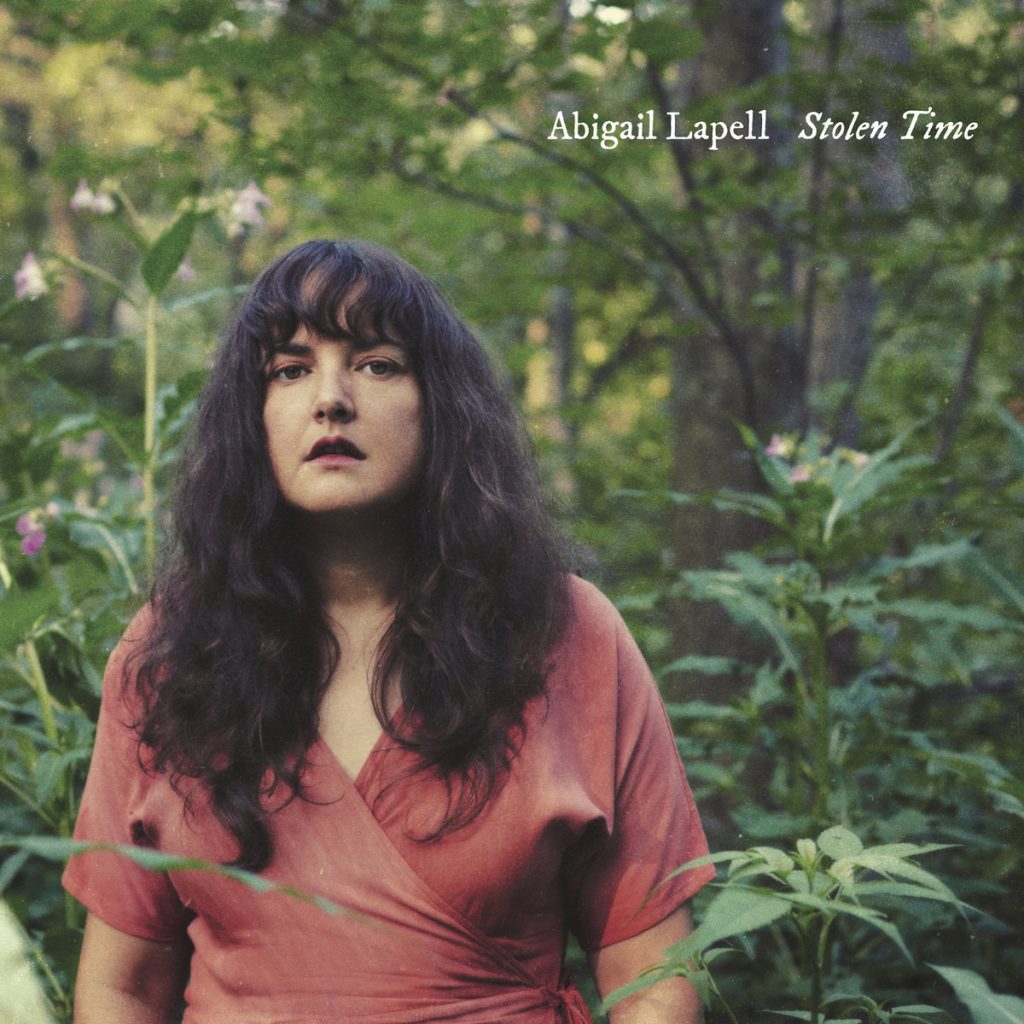ALBUM REVIEW: Abigail Lapell Displays Depth and Versatility on ‘Stolen Time’

With her fourth album, Stolen Time, Abigail Lapell builds on the folk and folk-rock templates of her previous three albums while strategically employing instrumental effects and moody atmospherics. Her versatile voice, however, defines the project, the Canadian singer-songwriter’s dreamy yet cogent delivery bringing to life a mix of ballads, odes, and arresting vignettes.
Opener “Land of Plenty” depicts a soldier who fancies a better future for himself and “the sailor’s daughter” with whom he yearns to spend his life. Immediately spotlighting Lapell’s mellifluous alto, the piece might be regarded as a sympathetic “immigrant song,” a reminder that displaced people around the globe, despite being treated as problematic statistics, are human beings, often holding onto frail hopes while enduring horrific circumstances.
On “Ships,” Dani Nash’s drums interplay with Christine Bougie’s crunchy guitars, Lapell’s vocal hinting at Waxahatchee’s country-dashed performances on Saint Cloud. “Scarlet Fever” is an oblique story about a woman who will most likely die from her illness, the song pointing to the ephemerality and inconsequence of an individual life. The song’s somewhat funereal tone is accented by a pensive fiddle part. On the title song, bolstered by sultry drums and a slinky lap-steel guitar, Lapell similarly uses vivid images to conjure a feeling of Edenic yet painfully impermanent conditions (“Stolen time, flowing like wine / Sun pouring out on the bay”).
“Now we’re howling at the neon moon / spinning madly in and out of tune,” Lapell sings on the piano-led “I See Music,” portraying an artist and her muse as they dance together ecstatically. “Sewage,” on the other hand, with its apocalyptic descriptions (“I dreamed I saw my baby with sewage in his veins”), is a diaristic, near-biblical take on environmental degradation, a frightening vision of the earth in its death throes.
With the buoyant “Old Flames,” Lapell’s wispy melody is complemented by ambient accents that swell and shrink in the background, recalling Cassandra Jenkins’ An Overview on Phenomenal Nature and Karima Walker’s Waking the Dreaming Body. “I Can’t Believe” unfolds as a skillfully executed triptych comprised of three independent yet related verses. Verse 1 features a pair of lovers supporting each other unconditionally; verse 2 shows the singer romanticizing a relationship with a stranger she sees in a bar; verse 3, providing overall context, points to an imagined and idealized relationship, a fantasy that helps to assuage the singer’s chronic loneliness.
With Stolen Time, Lapell mines traditional approaches while drawing discerningly from the contemporary folk, rock, and country playbooks. Melodies are understated yet seductive, lyrics ranging from the oblique to the direct. The album’s apparent simplicities belie an emotionally complex set, a sequence that addresses an assortment of difficult subjects, energized throughout by Lapell’s sober yet deeply expressive voice.
Abigail Lapell was a finalist in the 2019 No Depression Singer-Songwriter Contest. Read more about her here.



